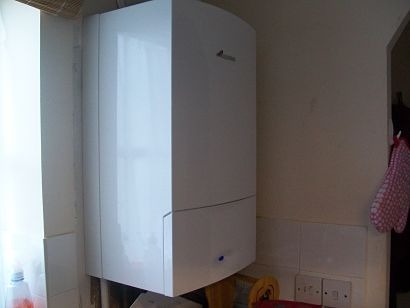
Natural gas is not cleaner than other fossil fuels and using it instead of coal or oil risks achieving little or no reduction in greenhouse gas effects according to the EASAC’s new report “Future of Gas”, which highlights the extremely high global warming potential of largely unrecorded methane leakages along the whole natural gas supply chain. To mitigate climate change, it is crucial to stop using all fossil fuels, to ban new natural gas boilers, and to massively ramp up renewable electricity production.
To replace Russian pipeline gas, European Member States have turned to liquid natural gas (LNG) from outside Europe.
“We understand this is a necessary compromise as an emergency measure to make sure we keep the lights on, people warm and industries running” said William Gillett, EASAC’s Energy Programme Director. “But as we are putting the immediate dependency on Russia behind us, we must completely phase out gas and ramp up renewables. We can’t argue our way out of drastic changes. The climate does not make compromises.”
Methane emissions have a lifetime in the atmosphere of only about 10 years, which is ten times shorter than that of carbon dioxide. However, its 20-year global warming potential is over 80 times that of carbon dioxide, which means that it is far more destructive.
“So far, we have been evaluating the impact of greenhouse gas emissions in a time span of up to 100 years” added Neven Duić, Chair of EASAC’s Energy Steering Panel. “And there is nothing wrong with these calculations. However, climate change is progressing so fast that now we must focus on impacts within the next ten years. That’s why there is no alternative to replacing natural gas with renewables at once.”
With 65 million boilers installed in the EU to heat buildings, heating is by far the largest use of natural gas. Eight Member States have already adopted measures to ban the installation of new gas boilers or to require high levels of renewables in buildings. These actions should be stimulated throughout Europe, Mr Duić says.
The report recommends heat pumps and district heating as ready-to-use and climate-friendly alternatives to gas boilers. It underlines that heating, unlike electricity, is a very local market. Building structures and regulations, local climate, demand densities and the availability of renewable or waste heat sources influence what should be the best choice for each district or building. Therefore, cities must integrate the transition into urban planning, and engage with heating system owners and users. Also, it is vital that this process addresses social injustices.
Gas distribution and supply companies often argue for progressively replacing natural gas with hydrogen, which would allow them to keep their assets running for years to come. However, from a scientific point of view, this approach holds very little promise for heating homes more cleanly. Blending 10 percent hydrogen with natural gas only delivers 1 percent in CO2 reduction according to Anne Neumann, Chair of the EASAC Working Group. This is not a good use of a valuable energy carrier that is more suited to hard-to-abate sectors and heavy-duty transport.
For a long time, natural gas has been seen as the ideal bridge from coal on the road towards net-zero carbon emissions by 2050. In some countries, natural gas has become the main fuel to generate electricity. EASAC’s “Future of Gas” report makes clear that this is a dead-end road.
“Natural gas should no longer be considered as a transitional option” added Mr Duić. “All electricity production and heating based on combustion literally fuels global warming, and must be replaced by renewables such as wind, solar, or hydro.”
The report also weighs the possibilities of carbon capture and storage (CCS) and nuclear but finds that fusion is still in its infancy and neither CCS nor new nuclear plants based on current or small modular reactor technology can be built quickly enough. Furthermore, in many regions, nuclear power plants are vulnerable to climate change effects such as shortages of cooling water.
For additional information:

